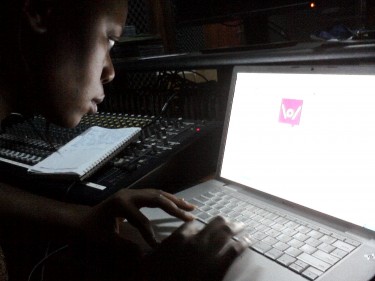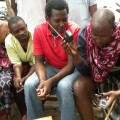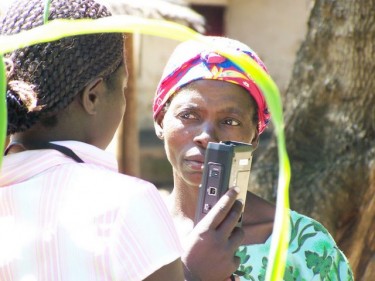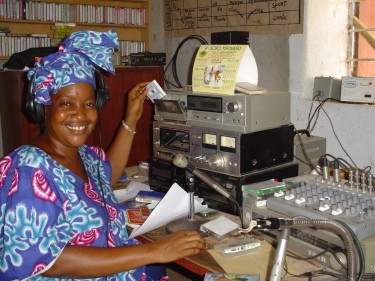On this anniversary of world radio day, a post about how the interactions between internet and traditional broadcasters can create more effective radio programs.
With high access and low production costs, says Farm Radio International [1], traditional broadcast radio is the technology that best meets rural needs. Working to reach farmers across Sub-Saharan Africa is working with a population with a 3% rate of internet access versus 76% access to radio technologies (says the FRI website [2]).
![]()
Though digital resources may not reach farmers directly, they can complement traditional broadcast radio, making it more effective, and Farm Radio International has launched a host of online resources [3] for use by regional broadcasters across the continent…
Barza [4] is an online community across Africa [5] including a highly active peer-managed forum [6], sample audio clips, and a long list of pre-written radio scripts in various languages (English and French, and recently Swahili and Hausa [7]).

Lilian, a broadcaster in Tanzania, uses “Frontline SMS” to send out text messages to her listening audience with FRI.
These ready-made scripts [8] range in topic from broad (for example Storytelling [9] and Gender Equality [10]) to very specific (such as Improving Food Security for Ugandans [11])

A Masaai Radio istening Group in Moro Goro, Tanzania.
One script [12] hails from Uganda’s Mega FM [13], who runs peace-building activities in a region brutally divided by the Lord’s Resistance Army. After the prolonged war led to the felling of many fruit trees, Mega FM collaborated with Farm Radio International to promote cultivation of fruit trees for improved food security – in conjunction with supportive radio programming about tree care. This was coulpled with ICT – mobile phone messages alerting farmers to upcoming broadcasts.
FRI focuses on interactive programming, with quotes and debates about policies and products between local farmers, not just top-down information.
Akot Janet is a farmer who participated in the program; she was asked if she had benefited from receiving market prices via SMS messages. She responded:
I used to sell my crop for a very low price, just because I had no idea how the market was moving. I often felt confused when I was dealing with traders. I thought that I had to take the first bid the trader offered. This information on fruit tree growing has given me a lot of encouragement to start planting trees to improve my income. I have a number of mangoes and pawpaw trees, but I didn’t know that fruit could earn me a living.

Partners in the field working with Farm Radio International
FRI also provides training opportunities; including last fall's 11-week e-course [14] open to sub-Saharan African broadcasters on designing an effective program to help farmers as well as weekly trainings on various topics (discussed on the forum [15]) around storytelling in radio. FRI works with Search for Common Ground [16] and Radio for Peacebuilding Africa [17] to prepare a series of ten modules on management and operations in community radio stations to build capacity.

Radio Djitoumou in Quelessbougou, a Farm Radio International/AFRRI partner in Mali sends agricultural information to small farmers in African countryside. All images are by FRI and available online from Picasa.